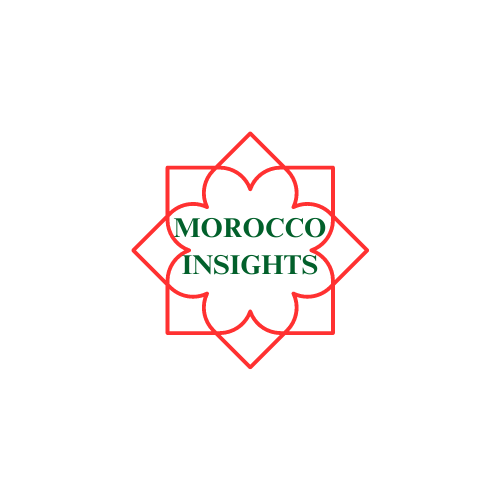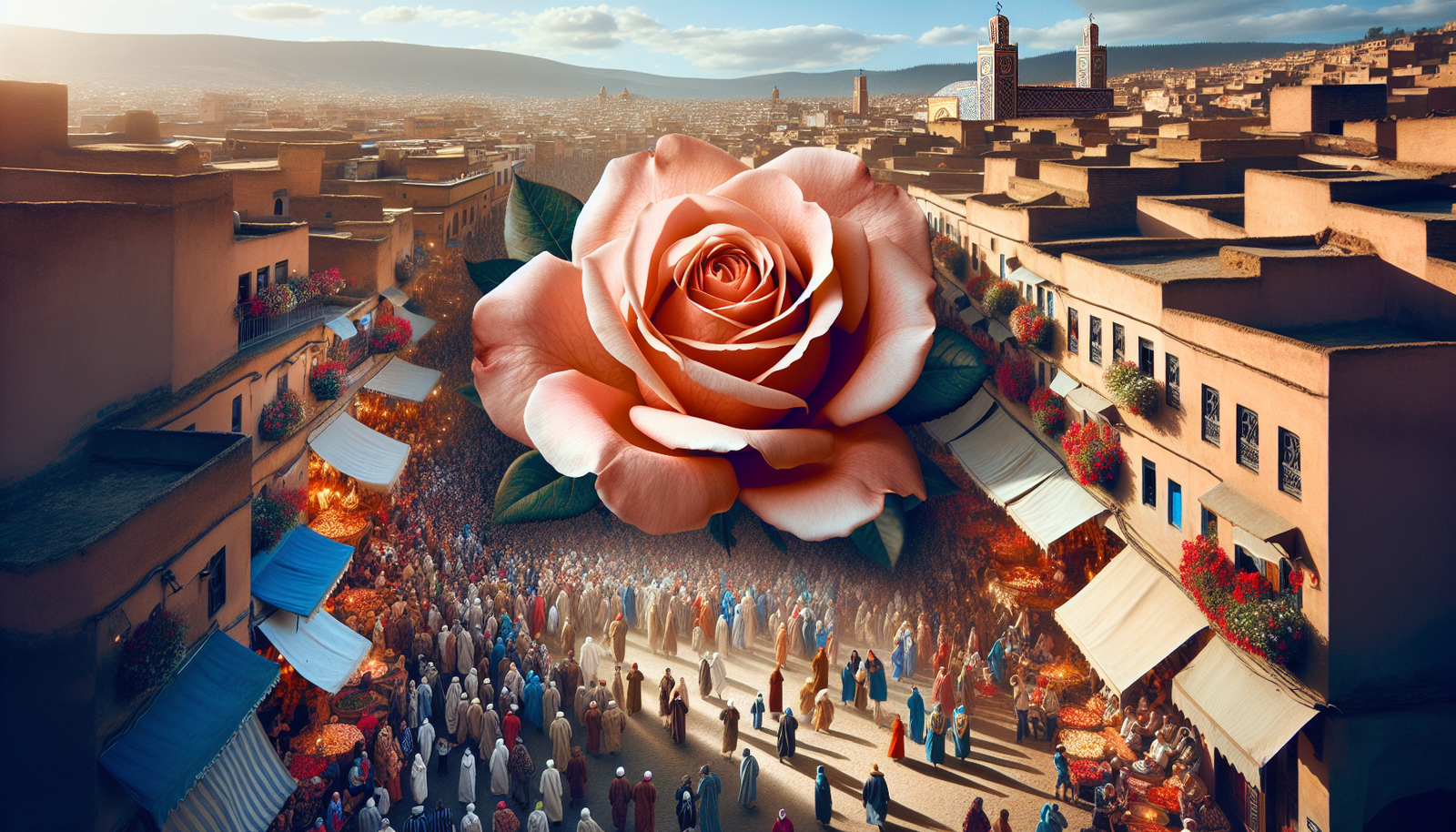Imagine yourself in the enchanting region of Kelaat M’Gouna, where every year, a vibrant celebration takes place – the Annual Rose Festival. As the sweet scent of roses fills the air, you can’t help but wonder about the cultural significance of this grand event. Explore the captivating traditions and customs that are intertwined with this festival, as locals come together to honor the timeless beauty of the rose and the rich heritage it represents. Discover the deep-rooted connections between the people of Kelaat M’Gouna and this delicate flower, as they unite in a joyous celebration that encapsulates the essence of their unique culture.
History of the Rose Festival
Origins of the Festival
The Rose Festival in Kelaat M’Gouna has a rich history that dates back several decades. It is believed that the festival was initially established as a way to celebrate the abundance and beauty of the rose fields that carpet the region. The festival’s origins can be traced back to the early 20th century when the rose cultivation industry started gaining prominence in the area. Over time, what began as a small local gathering has now transformed into a grand celebration of the coveted flower.
Evolution of the Festival over Time
Since its humble beginnings, the Rose Festival has grown in both scale and significance. What was once a local affair has evolved into a renowned cultural event that draws visitors from all over the world. Over the years, the festival has adapted to the changing times while still staying true to its roots. Today, it is a vibrant showcase of local traditions, arts, and cuisine, offering a unique insight into the rich heritage of the region.
Importance of Roses in Kelaat M’Gouna
Rose Cultivation in the Region
Kelaat M’Gouna is known as the “Valley of Roses” due to its prime location for rose cultivation. The region’s favorable climate, fertile soil, and abundant water supply make it an ideal place for growing roses. The local farmers have perfected the art of cultivating roses over generations, carefully tending to their crops to yield the highest-quality flowers. The delicate Damask rose, also known as the Rosa damascena, is the primary species cultivated in the area and is highly valued for its fragrance and cosmetic properties.
Economic Impact of the Rose Industry
The rose cultivation industry plays a vital role in the economy of Kelaat M’Gouna and the surrounding region. The annual harvest of roses leads to the production of various rose-based products such as rosewater, rose oil, and rose-infused cosmetics. These products are highly sought after both domestically and internationally. The rose industry not only provides income for the local farmers but also generates employment opportunities for the community, including the production, processing, and distribution of rose-related goods.
Socio-cultural Significance of the Rose Festival
Symbolism of Roses in the Local Culture
In the local culture of Kelaat M’Gouna, roses hold deep symbolic meaning. They are associated with beauty, love, and purity, and are often used to express emotions and convey messages. Roses are seen as a symbol of fertility and abundance, signifying the bountiful harvest and prosperity of the region. The annual Rose Festival serves as a platform to celebrate and honor the cultural significance of this cherished flower, bringing together the community to rejoice in their shared heritage.
Community Participation and Unity
The Rose Festival is a time of great community spirit and unity in Kelaat M’Gouna. The festival brings together people from all walks of life – locals, farmers, artisans, and visitors – to celebrate the beauty and fragrance of roses. It provides a space for the community to strengthen bonds, share stories, and showcase their talents. The festival’s inclusive nature encourages participation from all, fostering a sense of belonging and pride in the local culture and traditions.
Preparation for the Rose Festival
Rose Harvesting and Production
Preparations for the Rose Festival begin several months in advance, with the rose harvest being a crucial first step. The flowers are carefully hand-picked early in the morning when their fragrance and freshness are at their peak. This labor-intensive process requires skill and expertise to ensure that only the finest roses make it to the subsequent stages of production. The harvested roses are then used to produce various items such as rosewater, essential oils, and cosmetic products.
Organizational Efforts
Organizing the Rose Festival is a collective effort that involves various stakeholders in Kelaat M’Gouna. Local community groups, government organizations, and cultural associations work together to plan and execute the event. Activities such as securing venues, coordinating transportation, organizing exhibitions, and arranging performances require meticulous planning and coordination. The dedication and collaboration of these individuals and groups contribute to the success and smooth running of the festival.
Activities and Events during the Festival
Rose Parade and Processions
One of the highlights of the Rose Festival is the spectacular Rose Parade and Processions that wind through the streets of Kelaat M’Gouna. The parade showcases elaborately decorated floats adorned with vibrant roses, depicting scenes from local folklore, history, and culture. Participants, dressed in traditional attire, dance and sing along the procession, creating a lively and colorful atmosphere. The parade attracts both locals and tourists, who eagerly line the streets to witness this breathtaking display of creativity and joy.
Rose Queen Selection and Crowning
A significant event during the Rose Festival is the selection and crowning of the Rose Queen. Contestants from the local community compete for the title, showcasing their talent, grace, and knowledge of the region’s culture. The Rose Queen is chosen as an ambassador of Kelaat M’Gouna and represents the festival throughout the year at various events and promotional activities. Her role is to embody the spirit and beauty of the Rose Festival and promote the cultural heritage of the region.
Traditional Arts and Crafts
Rose-Based Traditional Products
The Rose Festival provides an opportunity to showcase the traditional arts and crafts associated with roses. Artisans display their skills in creating intricate designs and patterns using dried rose petals, such as rose petal jewelry, decorative wall hangings, and even handmade paper infused with rose essence. These products not only showcase the creativity of the local artisans but also serve as unique souvenirs for visitors to take home, carrying with them a piece of Kelaat M’Gouna’s rich cultural heritage.
Artisanal Workshops and Exhibitions
Throughout the Rose Festival, various artisanal workshops and exhibitions are held to give visitors an immersive experience of the region’s traditional crafts. Visitors can participate in hands-on workshops where they can learn the art of making rose-based products, such as rosewater distillation or soap-making. The exhibitions provide a platform for local artisans to showcase their creations, allowing visitors to appreciate and support the talent and craftsmanship of the community.
Folklore and Cultural Performances
Traditional Dances and Music
The Rose Festival is a vibrant and lively celebration of local music and dance traditions. Traditional dance troupes perform to the rhythmic beats of traditional instruments, delighting the audience with their colorful costumes and energetic movements. The music and dances often depict stories from local folklore, retelling tales of love, nature, and the region’s history. These performances create a sense of enchantment and connection to the cultural heritage of Kelaat M’Gouna, fostering a deeper appreciation for the traditions passed down through generations.
Storytelling and Poetry Recitals
Storytelling and poetry recitals are integral parts of the Rose Festival, adding a touch of nostalgia and oral tradition to the celebrations. Local storytellers captivate the audience with their tales of love, bravery, and adventure that have been handed down through generations. Poets recite verses that pay homage to the beauty of roses, the landscapes of the region, and the emotions they evoke. These storytelling sessions and poetry recitals enhance the cultural immersion of visitors, allowing them to experience the richness of the local heritage firsthand.
Local Cuisine and Gastronomic Traditions
Rose-infused Dishes and Beverages
The Rose Festival is a treat for the senses, not only in terms of visual and auditory experiences but also through gastronomy. Local culinary traditions take center stage, showcasing dishes and beverages infused with the delicate flavor of roses. Visitors can indulge in delights such as rose-flavored pastries, rose petal preserves, and even rose ice cream. Rose-infused beverages like rose lemonade and rose tea are also popular choices. These innovative culinary creations highlight the versatility of roses and their unique contribution to the region’s cuisine.
Cooking Workshops and Tastings
Visitors to the Rose Festival can engage in cooking workshops and tastings that offer a deeper understanding of the local cuisine. Expert chefs and culinary enthusiasts guide participants through the process of preparing traditional Moroccan dishes using rose-infused ingredients. The workshops provide an opportunity to learn about the culinary traditions of the region while getting hands-on experience in creating flavorsome and aromatic dishes. Tastings allow visitors to savor the unique flavors and aromas of the rose-infused cuisine, further enhancing their cultural experience.
Tourism and Regional Development
Tourist Attraction and Promotion
The Rose Festival acts as a significant tourist attraction, drawing visitors from far and wide. Its unique celebration of roses and the cultural heritage of Kelaat M’Gouna has garnered attention and interest from both domestic and international tourists. The festival provides a platform to promote the region’s natural beauty, cultural traditions, and local products. It has become a strong catalyst for tourism, driving the growth of the hospitality industry, and generating economic benefits for the local community.
Role of the Rose Festival in Local Development
The Rose Festival plays a crucial role in the overall development of Kelaat M’Gouna and its surrounding region. The influx of tourists during the festival brings economic opportunities, not only for the rose industry but also for various other sectors. The festival supports the growth of local businesses, including hotels, restaurants, handicrafts, and transportation services. It helps raise awareness about the region’s cultural heritage and fosters a sense of pride among the community. The festival’s success has led to improved infrastructure, preservation of cultural traditions, and overall socio-economic development.
Preserving Cultural Heritage
Challenges and Threats to the Rose Festival
Despite its popularity and cultural significance, the Rose Festival faces several challenges and threats that pose risks to its long-term sustainability. Climate change, water scarcity, and environmental degradation are among the challenges that impact the cultivation of roses and the overall ecosystem in Kelaat M’Gouna. Additionally, changing lifestyle trends, globalization, and the rise of mass tourism may lead to the dilution or overshadowing of local traditions and cultural authenticity.
Efforts for Sustainability and Conservation
To ensure the preservation of the Rose Festival and its cultural heritage, various efforts have been undertaken by the local community, organizations, and government authorities. Initiatives focused on sustainable agriculture practices, water conservation, and environmental protection aim to mitigate the impact of climate change and safeguard the rose cultivation industry. Cultural exchange programs, education initiatives, and awareness campaigns are also being carried out to engage and educate the younger generation about the importance of preserving their cultural heritage. These collective efforts work towards the long-term sustainability and conservation of the Rose Festival in Kelaat M’Gouna.

